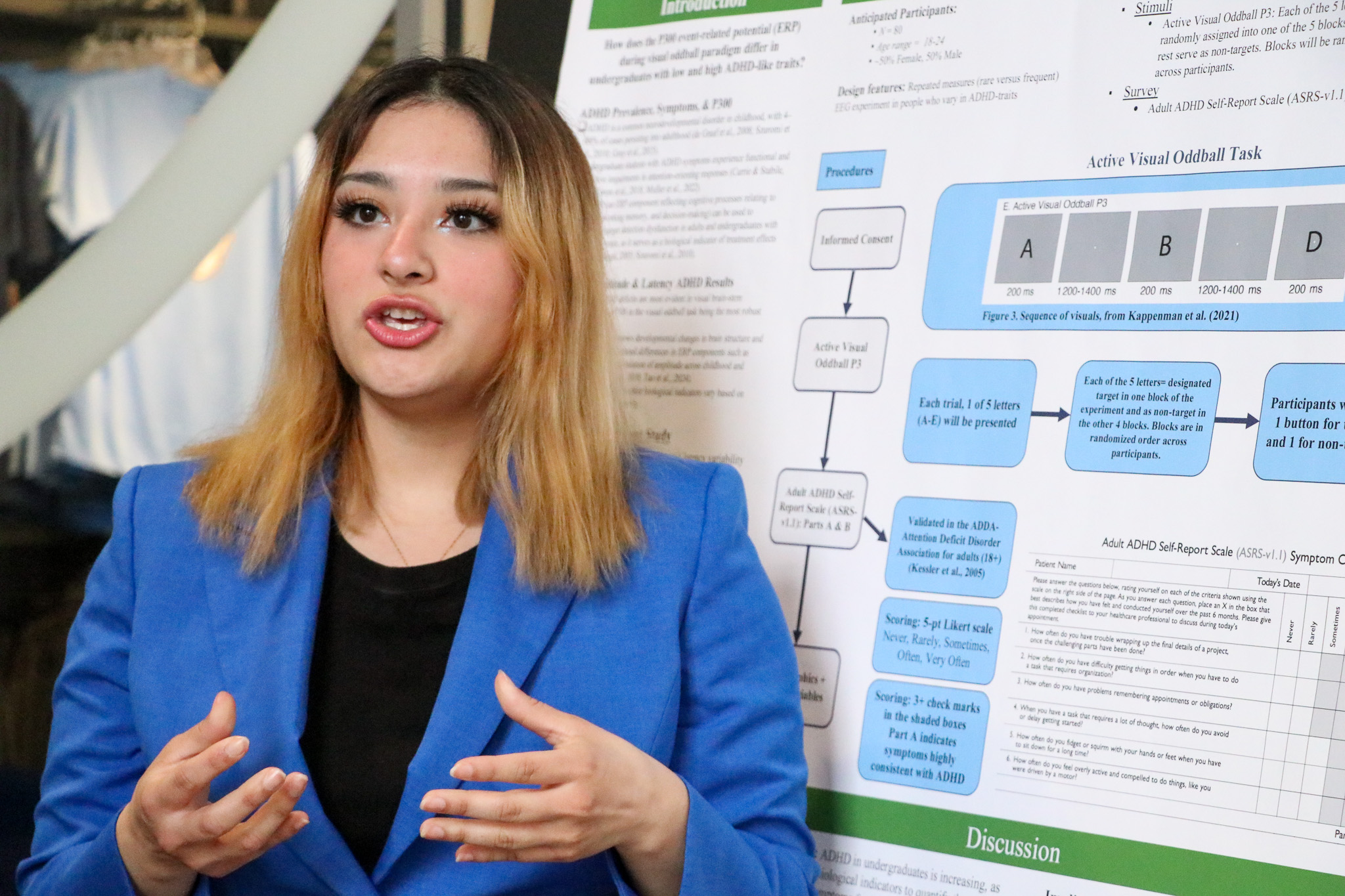Each year, the URC allows students to present on different topics from their coursework, as well as learn about what others are doing outside their realm of study. Photo by Natalie Goo.
ERIKA KOVACH | STAFF REPORTER | ekovach@butler.edu
With a longstanding history at Butler dating back to 1988, the annual Undergraduate Research Conference (URC) brought many students to campus this past week.
On Friday, April 11, over 200 students from Butler and beyond presented their research from coursework or independent study. Their work was displayed throughout the day during poster sessions or oral presentations, with almost all subjects being represented from anthropology, biology, English and more.
Anne Wilson, the director of Undergraduate Research and Creative Activity, coordinates the URC each year. She said much of last semester was spent preparing for the URC, specifically working in the application portal, which opened in February.
Junior history major Breanna Wilson is one of many students who participated in the conference for the first time this year. She began work on her project, “Resilience and Identity: Ukrainian Americans’ Response to the 2022 Russian Invasion,” through her anthropology capstone.
Breanna Wilson said Trump’s return to office has been particularly impactful on her project and led to changes in beliefs surrounding Ukraine and its independence, a timely matter she displayed in her poster presentation. Additionally, her current work may lead to related opportunities and continued research in her final few classes and capstone projects.
“Through my research, I’ve laughed and cried with interviewees, and I feel like that’s important about my work,” Breanna Wilson said. “Too often, the media dehumanizes these people, and I hope research like mine can break that mold by individualizing stories. Right now, there is such a lack of empathy in the world, and I’m hoping my research and methodologies can and will inspire people to learn more about other communities outside of their own, especially [outside] the Butler Bubble.”
Sophomore elementary education major Riley Pratt is also presenting impactful research that engages with different students and human behavior.
She began her research informally in September of 2024, where she was encouraged through her courses to explore different practices that might be effective in the classroom. Pratt looked into the use of behavioral charts, a classroom staple that many of her peers remembered as colored charts with clips being moved around based on positive or negative behavior.
“My experiments were created to answer whether behavior guides that pointed out negative behaviors could create a positive impact,” Pratt said. “In the end, I know that whatever positive impact there was was short-term, and a more negative impact was long-term.”
Pratt presented a poster with her findings at the URC, hoping to share her discoveries with the Butler community, especially other education students. Her study allowed her to determine potential future research opportunities and think about strategies she might someday use in her own classroom.
While the URC remained consistent in its format and offerings this year, Anne Wilson said they also held two special events at the end of the day, a science advocacy workshop and a science funding panel. With multiple Butler professors speaking as panelists, this event aimed to capture people concerned about cuts to government-funded research, such as the National Science Foundation (NSF) and National Endowment for the Humanities (NEH), while they were on campus and surrounded by undergraduate works. These panelists answered pertinent student questions surrounding the issue and discussed future opportunities and endeavors despite these cuts.
“The [URC] is a great opportunity for folks to support their friends and peers, see what amazing work is happening on campus and feel the excitement of undergraduate research and creative activity,” Anne Wilson said. “Students should attend as much as they possibly can.”



